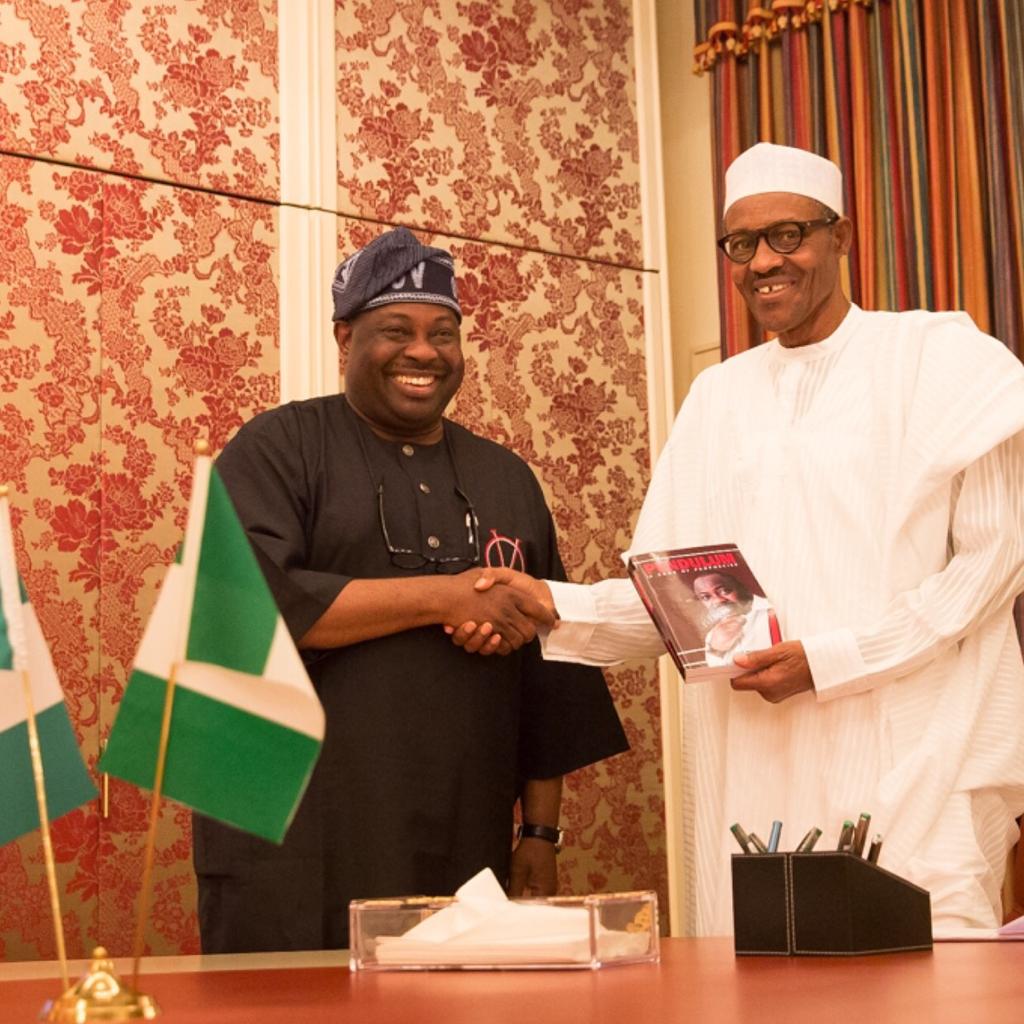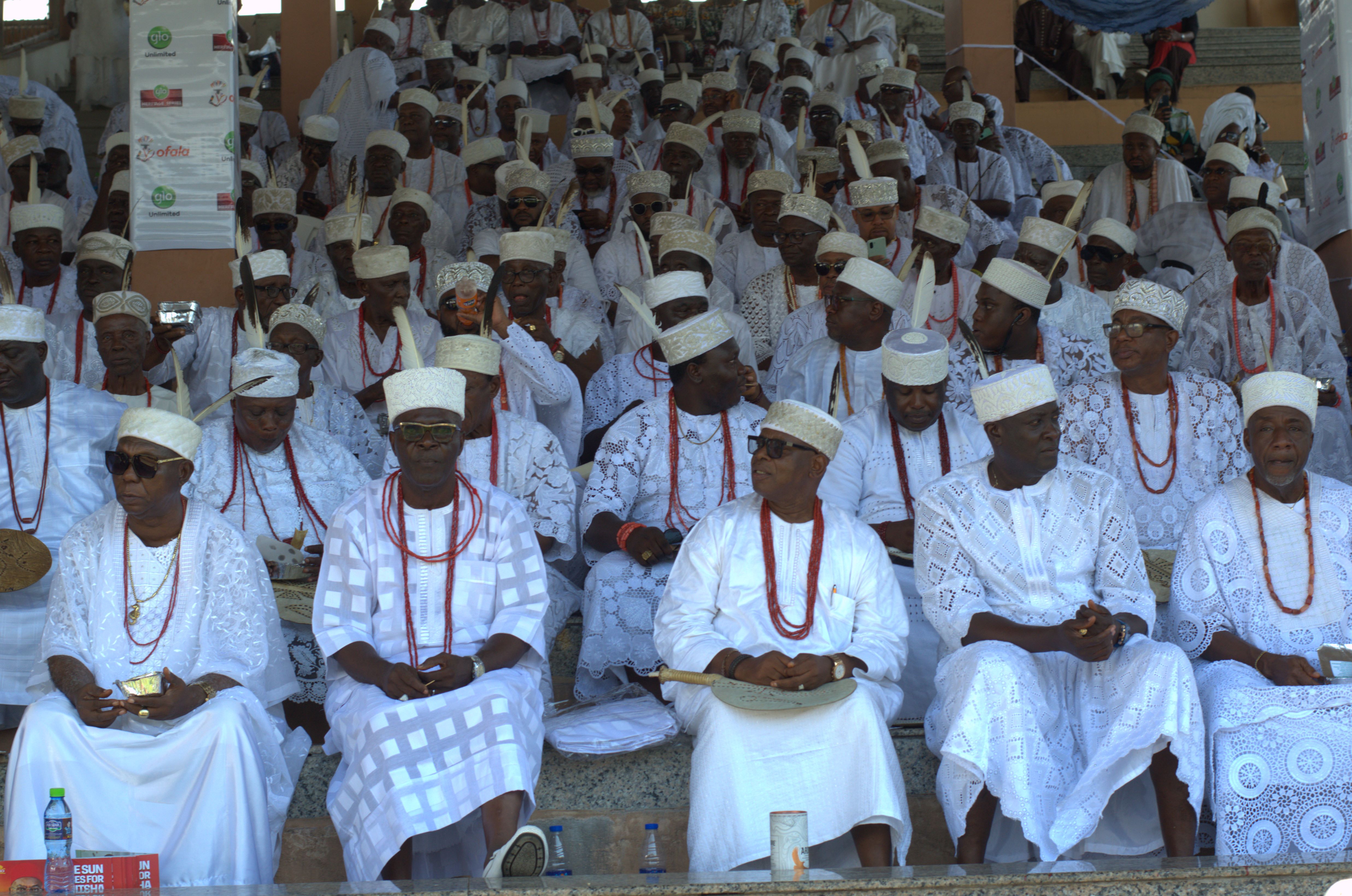By Dele Momodu
Fellow Nigerians, except for the recklessly optimistic souls, it is so easy to give up on our dear beloved country Nigeria. I will explain why in a jiffy. I do not consider myself a young man at almost 60. Let me do a bit of flashback before I continue my epistle. I entered the University of Ife (later renamed Obafemi Awolowo University) relatively young in 1978, as a pioneer JAMBITE. We were the first students admitted under the supervision of the Joint Admissions and Matriculation Board. I was 18 at the time but I started living on campus two years earlier under the tutelage of my older Brother, Oladele Ajayi, who had just returned home from Stanford University where he bagged a PhD in Materials Science. Life was good in those days and some lecturers were allotted flats within students’ hostels as a way of forging interactions between them. This was how I got introduced very early to students’ activism. I had worked in the University of Ife Library from 1977-78, prior to gaining admission and this further exposed me to life on campus.
I witnessed the ALI-MUST-GO riots of 1978, when students were fighting over the increase in the price they were paying for their subsidised three square meals. We thought life was becoming unbearable then. How can Obasanjo’s government increased daily meals from 50k to N1.50k, we queried. Breakfast was only 10k with full English or traditional breakfast. Tea was in abundance. You were even allowed to bring your own flasks to take away tea, milk and sugar. Sumptuous lunch and dinner were 50k each. Weekends were very special. We truly had fun. But trouble came when the price was unilaterally tripled by the military government.
Since then, I have witnessed, or actively, participated in several demonstrations, especially if they were peaceful. I have written hundreds of essays and articles on the endless and intractable problems in Nigeria. I was detained under the Babangida government, and forced to run into exile under the Abacha government, all in our quest for good governance and positive developments in our country. But, like Abiku, the spirit-child who comes into the world and saunters back at will, Nigeria has not been able to break the jinx of incompetence, profligacy, underdevelopment, dictatorship and general maladministration. We continue to waltz from one crisis to another. And every time we assumed we were close to our destination, something suddenly goes wrong.
How could a country as bedevilled by a barrage of debilitating challenges as Nigeria refuse to change how businesses are conducted when it is so obvious that we cannot continue along this perfidious route to perdition and ruination? Yet no one seems to worry, or care, about making the necessary sacrifice for our liberation and salvation. The civil war we fought from 1967-70 should have taught us about the importance of unity and the necessity for civilised cooperation amongst us instead we continue to misbehave as if possessed by the worst demons on earth. A civil war that came to a climax with the open declaration of “no victor, no vanquished” has virtually produced a master/servant conundrum with everyone fighting for territories.
We had, and lost, our best chance on June 12, 1993, when President Ibrahim Babangida organised the best and fairest Presidential election, which was won by Chief Moshood Abiola. I harbour no fear that the ethnic strife eating us up today could have been avoided and permanently banished to the pit of hell. Those who profit from chaos and conflagration (the Yoruba word for them is more poignant, “ARIJENIDIMODARU”) totally won the day. Nigeria is yet to crawl out of that monumental disaster since then, some 26 years after. Like the ostrich, our leaders and their followers continue to bury their heads in dusty sands, and living in denial. Again, we all knew the solution was not as complex and complicated as it seems, we opted to try the cheaper and ineffective option. The military decided to install a crawling Interim Government that took little or no time in dismantling. And we soon navigated our way from frying pan into a towering inferno when General Sani Abacha took power, forcefully, about three months after Chief Degunle Shonekan, a corporate titan, was installed as supposed compensation for the annulment of June 12, while the clear winner was subjected to the worst forms of humiliation.
Rather than come together to fight the military and chase Abacha and his foot-soldiers back to the barracks, our political leaders chose to be opportunistic by insisting on joining the most ruthlessly draconian government in the history of Nigeria. Not just that, some of the leaders decided to even plead with Abacha to stay on in power perpetually. Let me not bore you with the rest of the story about the pestilence that ravaged and savaged the country. Chief Abiola was hurled into detention while life dragged on in his absence, till he eventually died, suddenly. Members of the political class, as lily-livered as always, never saw the need to come together, but merely spluttered a few incoherent condolences to the Abiola family while many were already jostling for a placement within the new military government, headed by General Abdulsalami Abubakar.
One year after, in 1999, Chief Olusegun Obasanjo, a former military Head of State, from 1976-79, was repackaged and catapulted back to power. You would have thought Nigerians would insist on a compensation and reparation for the injustice meted out to Abiola, his family and associates but such never materialised. At the very least, a government of National Unity should have been put in place to douse the tension in the land but those in power dug deeper and dumped June 12 in the trash can of history but the irrepressible watershed refused to go away. The more they tried to bury it, the stronger it fought back to haunt a country that finds it hard to honour her authentic heroes.
The main thrust of my thesis this week is that Nigeria is in a big mess because we have refused to do things differently. We have continued to repeat the same nonsense while expecting different results. Worse still, we all know the solutions to our intractable problems but we have stubbornly refused to do anything meaningful about it. I will catalogue a few of what we should have done. The first is war between the ethnic groups. This is fuelled and amplified by politicians. I have friends across Nigeria and we get on very well but the politicians prefer to play the ethnic cards to create an illusory impression that they represent the interest of their people. But this is a blatant lie. Examples abound that the areas that have produced Presidents have not fared better than those that produced none. Tafawa Balewa, from Bauchi. Azikiwe from Anambra. Gowon from Plateau. Murtala Muhammed from Kano. Obasanjo from Ogun (twice lucky). Shagari from Sokoto. Buhari from Katsina (twice lucky). Babangida, from Niger. Shonekan, from Ogun. Yar’Adua from Katsina. Jonathan, from Bayelsa. We have not noticed any stupendous development in those States. At the very best, most of them are in squalid conditions while a few of their sons and daughters have access to loot and pilfer the resources of our long-suffering nation. The biggest source of unrest in Nigeria today is the feeling of deliberate marginalisation by President Buhari of certain sections of the country. The nonchalance is so embarrassing and unjustifiable.
Two. We all know that the greatest weapon against poverty today is education. Yet, while the world is marching forward in educational achievements, Nigeria has been marching backward. Nigerians who are naturally brilliant hardly have any opportunities to acquire latest knowledge and after struggling so hard, they have no jobs at home. Many are forced to travel dangerous roads and waterways into exile. Many have perished in the process. One wonders what it takes to find the right people to upgrade our education to international standards. We play politics with everything and this has affected our education, so much so that we have lost some of our best brains to foreign lands.
Three. We grew up hearing that “health is wealth”, yet excellent medical facilities are neither available nor affordable for the average Nigeria. The rich, including top government functionaries have to fly abroad at the flimsiest excuse. No government has succeeded in building just one world class hospital in Nigeria. We waste our scarce resources on flying abroad.
Four. We all know that one of the reasons our manufacturing collapsed was due to lack of power yet we have not been able to generate, transmit and distribute sufficient and substantial power nationwide. And the amount of money which has been pumped into that sector has achieved no commensurate results. No leader can consider himself successful if unable to find a lasting solution to these disgraceful power outages in our country. The state of our infrastructure is too miserable for our size and status in the comity of nations. Apart from lack of enough resources we need to kill the nauseating bureaucracies that tend to slow down too many things but we still have not done enough to turn this around.
Five. It must worry us to high heavens that majority of our youths have no jobs. This is what has increased the spate of violence and general insecurity astronomically. But the jobs will not come if our youths are not well groomed and ready for the challenges ahead. A government that has no sense of urgency cannot achieve these things in eight years. What is obvious to me is that at the snail-speed we have started again in 2019, we may not get too far in correcting our anomalies between now and 2023
It would be a big shame.

 News6 years ago
News6 years ago
 Featured7 years ago
Featured7 years ago
 Boss Picks6 years ago
Boss Picks6 years ago
 Headline6 years ago
Headline6 years ago
 Headline6 years ago
Headline6 years ago
 Headline6 years ago
Headline6 years ago
 Headline6 years ago
Headline6 years ago
 Headline6 years ago
Headline6 years ago













